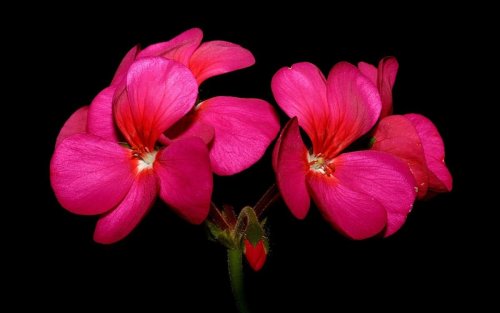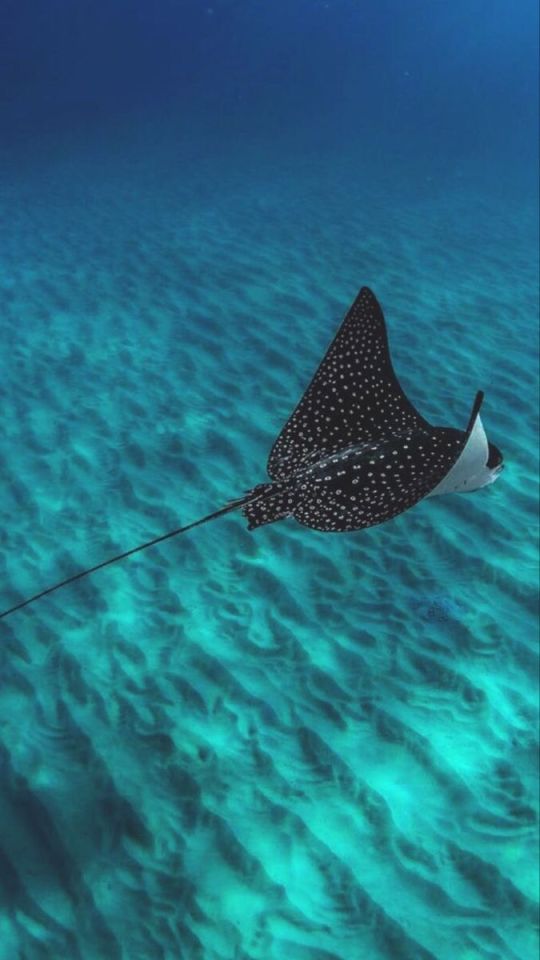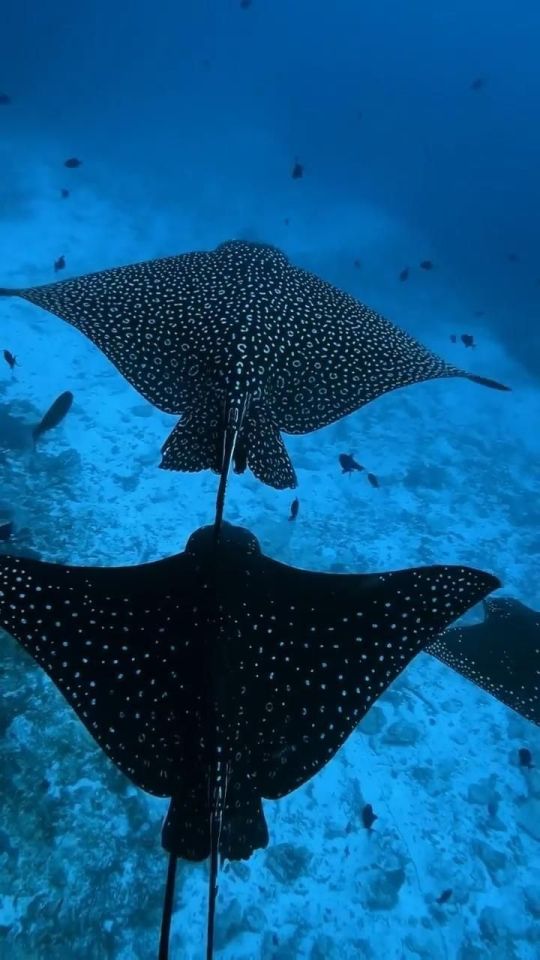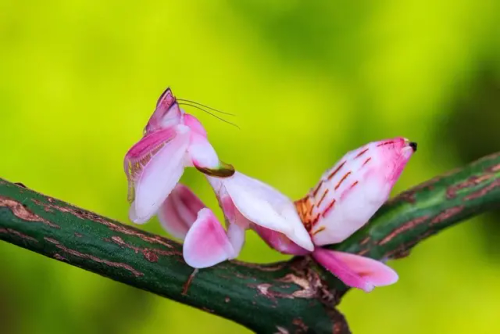
197 posts
-, , , . 3 1980- Danaus Plexippus 60 . , , , , .


















На территории мексиканских штатов Мичоакан и Мехико расположен Биосферный заповедник Марипоса-Монарка, который известен тем, что в нём зимуют бабочки вида Данаида монарх, считающиеся одним из красивейших насекомых планеты. Находящийся на высоте около 3 тыс м природоохранный комплекс был создан в 1980-м году указом президента Мексики Хосе Лопеса Портильо специально для сохранения Danaus plexippus и с конца октября по март здесь дожидаются тепла и размножаются от 60 млн до миллиарда этих насекомых. Монархи — единственные из бабочек, которые каждый год совершают длительные перелёты с севера на юг и в обратном направлении, но ни одна из бабочек не преодолевает весь путь целиком — продолжительность жизни насекомых составляет от двух до семи месяцев, так что с севера на юг летит одно поколение, а в другую сторону — уже следующее.
Лучшее время для посещения Биосферного заповедника бабочки монарх – с конца января до середины марта, т.к. до середины января из-за низких температур бабочки почти все время находятся в полу спящем состоянии, укутывая красочным ковром деревья и кустарник.
The Mariposa Monarch Biosphere Reserve is located on the territory of the Mexican states of Michoacan and Mexico City, which is known for the fact that butterflies of the species Danaida Monarch, considered one of the most beautiful insects of the planet, winter there. Located at an altitude of about 3 thousand meters, the nature conservation complex was created in 1980 by decree of Mexican President Jose Lopez Portillo specifically to preserve Danaus plexippus and from the end of October to March, 60 million to a billion of these insects wait for warmth and reproduce here. Monarchs are the only butterflies that make long flights from north to south and in the opposite direction every year, but none of the butterflies cover the entire path entirely — the lifespan of insects is from two to seven months, so one generation flies from north to south, and the next one flies the other way.
The best time to visit the Monarch Butterfly Biosphere Reserve is from the end of January to mid–March, because until mid-January, due to low temperatures, butterflies are almost always in a semi-dormant state, wrapping trees and shrubs with a colorful carpet.
Источник: t.me/+HLoqW4OcT5VjZjM6, //ru-travel. livejournal.com /30070394.html, //www.factroom.ru/facts/54342/, //animals.pibig.info /8445-dolina-babochek.html, /primetravel.com.mx/туристические-направления-мексики/рег-центральная-мексика/заповедник бабочкимонарх, //dzen.ru/a/Y2FeI2N9E0IxkUX3.
-
 northameicanblog liked this · 6 months ago
northameicanblog liked this · 6 months ago -
 hibiscusbabyboy liked this · 6 months ago
hibiscusbabyboy liked this · 6 months ago -
 mwtcuenca liked this · 7 months ago
mwtcuenca liked this · 7 months ago -
 angelayasmim liked this · 7 months ago
angelayasmim liked this · 7 months ago -
 mdoubledos liked this · 8 months ago
mdoubledos liked this · 8 months ago -
 phantomofthering liked this · 9 months ago
phantomofthering liked this · 9 months ago -
 mimimoye liked this · 9 months ago
mimimoye liked this · 9 months ago -
 ccp-aus-cccp liked this · 9 months ago
ccp-aus-cccp liked this · 9 months ago -
 hvynh-wxrld liked this · 9 months ago
hvynh-wxrld liked this · 9 months ago -
 marco-gamboa liked this · 9 months ago
marco-gamboa liked this · 9 months ago -
 leontinrau liked this · 9 months ago
leontinrau liked this · 9 months ago -
 jlmahmud liked this · 9 months ago
jlmahmud liked this · 9 months ago -
 anaftlxpt liked this · 9 months ago
anaftlxpt liked this · 9 months ago -
 dataspin40 liked this · 9 months ago
dataspin40 liked this · 9 months ago -
 francisesponja liked this · 9 months ago
francisesponja liked this · 9 months ago -
 francisesponja reblogged this · 9 months ago
francisesponja reblogged this · 9 months ago -
 keenlandlady liked this · 10 months ago
keenlandlady liked this · 10 months ago -
 deafeningsoulpeachrebel liked this · 10 months ago
deafeningsoulpeachrebel liked this · 10 months ago -
 huzur-un liked this · 10 months ago
huzur-un liked this · 10 months ago -
 marcela-33 liked this · 10 months ago
marcela-33 liked this · 10 months ago -
 digital-media-enthusiast liked this · 10 months ago
digital-media-enthusiast liked this · 10 months ago -
 tytncp42 liked this · 10 months ago
tytncp42 liked this · 10 months ago -
 littletornado liked this · 10 months ago
littletornado liked this · 10 months ago -
 gaiawatcher liked this · 10 months ago
gaiawatcher liked this · 10 months ago -
 naser1963 liked this · 10 months ago
naser1963 liked this · 10 months ago -
 unicornmonopoly liked this · 10 months ago
unicornmonopoly liked this · 10 months ago -
 manessha545 liked this · 10 months ago
manessha545 liked this · 10 months ago -
 cimciimee liked this · 10 months ago
cimciimee liked this · 10 months ago -
 itscaptaindisco reblogged this · 10 months ago
itscaptaindisco reblogged this · 10 months ago -
 itscaptaindisco liked this · 10 months ago
itscaptaindisco liked this · 10 months ago -
 mustafa-y-b liked this · 10 months ago
mustafa-y-b liked this · 10 months ago -
 zaharprostoi liked this · 10 months ago
zaharprostoi liked this · 10 months ago -
 praline1968 liked this · 10 months ago
praline1968 liked this · 10 months ago -
 chaoticdreamfart liked this · 10 months ago
chaoticdreamfart liked this · 10 months ago -
 jessiemoonsims liked this · 10 months ago
jessiemoonsims liked this · 10 months ago -
 angel-oriel liked this · 10 months ago
angel-oriel liked this · 10 months ago -
 gunduzmetin liked this · 10 months ago
gunduzmetin liked this · 10 months ago -
 moonlight00318 liked this · 10 months ago
moonlight00318 liked this · 10 months ago -
 darialovesstuff reblogged this · 10 months ago
darialovesstuff reblogged this · 10 months ago -
 darialovesstuff liked this · 10 months ago
darialovesstuff liked this · 10 months ago -
 gentle-breeze liked this · 10 months ago
gentle-breeze liked this · 10 months ago -
 alriks-small-room liked this · 10 months ago
alriks-small-room liked this · 10 months ago -
 some-places liked this · 10 months ago
some-places liked this · 10 months ago -
 superjuancotto-blog liked this · 10 months ago
superjuancotto-blog liked this · 10 months ago -
 willyvaldeolivar reblogged this · 10 months ago
willyvaldeolivar reblogged this · 10 months ago -
 willyvaldeolivar liked this · 10 months ago
willyvaldeolivar liked this · 10 months ago
More Posts from Vestaignis
Завораживающая красота косаток. The mesmerizing beauty of killer whales.

















Косатки являются самыми крупными представителями семейства дельфиновых. Порой косатки достигают длины в 10 метров и веса в 6-7 тонн. Зубы у косаток вырастают до 11-13 сантиметров в длину. Окраска косатки представлена двумя цветами, то есть черным и белым. Белым цветом у нее окрашено горло и живот, а черным – бока и спина. В северной части Тихого океана можно встретить косаток альбиносов и косаток меланистов (полностью черных), но это уже является следствием генетического отклонения.
Косатки являются хищниками высшего порядка, то есть никто из животных в дикой природе не охотятся на них. Они могут охотиться даже на крупных китов и акул. В сутки взрослой особи требуется 100-150 килограмм пищи. Иногда косаток называют «морскими волками», так как они предпочитают охотиться группами, как стаи волков. У косаток есть свой «язык», а особи из разных групп имеют свой диалект, если можно так назвать спектр звуков, которыми они обмениваются для общения. Косатки — животные социальные. Они предпочитают сосуществовать небольшими группами, связанными семейными узами. Иногда численность групп косаток может доходить до 40-50 особей.
Косатки обитают во всех океанах и в большинстве морей от экватора к полюсам, в разных по температуре водах. И придерживается диапазона в 800м. от берега. А еще косатки могут развивать скорость до 50 километров в час. При этом сердце косатки бьётся под водой вдвое реже, чем на поверхности. Средний период жизни этих удивительных созданий составляет от 50 до 60 лет.
Killer whales are the largest representatives of the dolphin family. Sometimes killer whales reach a length of 10 meters and a weight of 6-7 tons. The teeth of killer whales grow up to 11-13 centimeters in length. The color of the killer whale is represented by two colors, that is, black and white. Her throat and belly are painted white, and her sides and back are black. In the North Pacific Ocean you can find albino killer whales and melanistic (completely black) killer whales, but this is already a consequence of a genetic deviation.
Killer whales are apex predators, meaning they are not hunted by any animal in the wild. They can even hunt large whales and sharks. An adult requires 100-150 kilograms of food per day. Killer whales are sometimes called "sea wolves" because they prefer to hunt in groups, like packs of wolves. Killer whales have their own “language,” and individuals from different groups have their own dialect, if you can call it that, the range of sounds that they exchange to communicate. Killer whales are social animals. They prefer to coexist in small groups connected by family ties. Sometimes the number of killer whale groups can reach 40-50 individuals.
Killer whales live in all oceans and in most seas from the equator to the poles, in waters of different temperatures. And sticks to the 800m range. from the shore. Killer whales can also reach speeds of up to 50 kilometers per hour. At the same time, the killer whale’s heart beats half as often underwater as on the surface. The average lifespan of these amazing creatures is from 50 to 60 years.
Источник: https://t.me/+E4YBiErj0A8wOGUy, ://pichold.ru/zhivotnye/morskaya-kosatka-50-foto.html, /pichold.ru/zhivotnye/morskaya-kosatka-50-foto.html, /klike.net/10098-kartinki-kosatki-100-foto.html, dzen.ru/a/YdlVwOvfZmBLhOWs, lookw.net/animals/page,3,28-kasatki-i-kity-80-oboev.html.
Яркие краски цветущей герани. Bright colors of blooming geraniums.


















Источник:https://t.me/+fxNu20lM26MwYzhi, /kartinki.pics/pics/9759-cvetok-geran.html, //lafoy.ru/pelargoniya-geran-75-foto-61.
Цветки и завязи банана. Banana flowers and ovaries.

















Источник:https://t.me/+fxNu20lM26MwYzhi,http://fotokto.ru/photo/view/1175063.html,klau.club/63970-cvetok-banana.html, //www.livemaster.ru/item/34793854-kartiny-i-panno-tsvetok-banana-akvarelnaya-kartina,kartinki.pics/pics/11466-cvetok-banana.html.
Движемся навстречу солнцу с элегантным скатом (Обыкновенный пятнистый орляк). Moving towards the sun with an elegant eagle spotted stingray.

















Обыкновенный пятнистый орляк (Аetobatus narinari).
Это — вид хрящевых рыб одноимённого рода семейства орляковых скатов. Пятнистый орляк принадлежит к роду Aetobatus, его видовое название можно перевести, как «орел–скат». Это скат крупных размеров (до 8,8 м с хвостом), у которого максимальный размах плавников-крыльев может доходить до 330 см, толщина тела в районе головы – 50 см, а вес до 230 кг. Скат орляк похож на парящую под водой хищную птицу -- не зря он получил свое название. Движения его плавников похожи на взмахи крыльев, нос на птичий клюв. Спинная поверхность орляка окрашена в темно-синий или чёрный цвет с белыми точками, брюшная сторона — белая. Хвост длиннее, чем у других скатов, и несёт на себе 2—6 ядовитых шипов.
Широко распространён в тропической зоне, включая Мексиканский залив, Гавайские острова, вдоль побережья западной Африки, в Индийском океане, Океании и вдоль обоих побережий Америки на глубине до 80 м. Обычно ведет одиночный образ жизни, но вне сезона размножения может образовывать крупные стаи. В дикой природе , если пятнистого орляка не трогать , то это животное неопасно и пугливо. Но , если , нечайно наступить на пятнистый орляк , то он обвивает ногу хвостом, наступившего на рыбу пловца , или рыбака и вонзает ядовитые шипы.Часто люди получают рваные раны, которые необходимо промыть и лечить.
Пятнистый орляк имеет охранный статус на Большом Барьерном рифе вдоль восточного побережья Австралии.
Eagle spotted stingray(Aetobatus narinari).
It is a species of cartilaginous fish of the eponymous genus of the eagle ray family. The eagle spotted stingray belongs to the genus Aetobatus, its specific name can be translated as "eagle–stingray". This is a large-sized stingray (up to 8.8 m with a tail), whose maximum wingspan can reach 330 cm, body thickness in the head area is 50 cm, and weight is up to 230 kg. The eagle stingray looks like a floating chi under watera bird of prey -- it got its name for a reason. The movements of its fins are similar to the flapping of wings, its nose is like a bird's beak. The dorsal surface of the eaglet is colored dark blue or black with white dots, the ventral side is white. The tail is longer than that of other stingrays and carries 2-6 poisonous spikes.
It is widespread in the tropical zone, including the Gulf of Mexico, the Hawaiian Islands, along the coast of West Africa, in the Indian Ocean, Oceania and along both coasts of America at depths up to 80 m. It usually leads a solitary lifestyle, but outside the breeding season it can form large flocks. In the wild, if the eagle spotted stingray is not touched, then this animal is harmless and timid. But if you step on a eagle stingray, it wraps its tail around the leg of a swimmer or fisherman who stepped on a fish and pierces poisonous thorns.People often get lacerations that need to be washed and treated.
The eagle spotted stingray has a protected status on the Great Barrier Reef along the east coast of Australia.
Источник://seaforum.aqualogo.ru/topic/59066-обыкновенный-пятнист%C2%AD%C2%ADый-орляк-аetobatus-narinari/, /ru.wikipedia.org/wiki/Обыкновенныйпятнистыйорляк, pofoto.club/29020-obyknovennyj-pjatnistyj-orljak.html, ru.pinterest.com/pin/985231163169913/,t.me/+HLoqW4OcT5VjZjM6.




























Орхидейный богомол (лат. Hymenopus coronatus).
Орхидейный богомол – красивое и необычное насекомое, которое получило название из-за сходства с орхидеей. Лапки этого уникального хищного насекомого разложены в виде лепестков. «Маскировка» под орхидею помогает богомолам защищаться от хищных врагов и охотиться на добычу самостоятельно и незаметно. Подвиды богомолов орхидей преимущественно имеют белые тона расцветки тела. Цвета отображаются в основном в оттенке от белого до светло-розового. В зависимости от типа и местности обитания, орхидейный богомол может менять цвет. А также его цвет зависит от того на каком этапе жизни находится богомол. Для сходства с цветами в процессе эволюции самки орхидейного богомола становились всё ярче и больше.
Зоологами выделено до 14 видов орхидей, под которые может удачно замаскироваться богомол. Розовые орхидейные богомолы выглядят и ведут себя как цветы . Они цепляются за ветки и раскачиваются взад и вперёд, имитируя потоки ветра. Насекомых, привлечённых фальшивыми лепестками, быстро ловят и съедают.Удивительно, но самцы обладают способностью летать. Богомолы, похожие на орхидею, населяют влажные тропические леса. Страны, где их наибольшее количество – Малайзия, Индия, Тайланд, Вьетнам. Многие виды проживают на африканском континенте.
Orchid mantis (lat. Hymenopus coronatus).
The orchid mantis is a beautiful and unusual insect, which received its name because of its resemblance to an orchid. The legs of this unique predatory insect are arranged in the form of petals. “Disguising” as an orchid helps praying mantises defend themselves from predatory enemies and hunt prey independently and unnoticed. Subspecies of mantis orchids predominantly have white body colors. Colors appear primarily in shades ranging from white to light pink. Depending on the type and location of its habitat, the orchid mantis can change color. And also its color depends on what stage of life the mantis is at. To resemble flowers, during the process of evolution, female orchid mantises became brighter and larger.
Zoologists have identified up to 14 species of orchids that a praying mantis can successfully disguise itself as. Pink orchid mantises look and act like flowers. They cling to branches and sway back and forth, imitating wind currents. Insects attracted by the false petals are quickly caught and eaten. Surprisingly, the males have the ability to fly. Orchid-like praying mantises inhabit tropical rainforests. The countries where they have the largest number are Malaysia, India, Thailand, Vietnam. Many species live on the African continent.
Источник:/herbgid.ru/tsvety/orhidejnyj-bogomol, /dzen.ru/a/ZW9MM8j3YnPMFVTk,/dzen.ru/a/XpgkjGOgdjbMvLfv, //ianimal.ru/topics/orkhidejjnyjj-bogomol, www.livemaster.ru/topic/2567791 - orhidejnyj-bogomol-hymenopus-coronatus, //celes.club/124-orhidejnyj-bogomol.html, /dzen.ru/a/YubT3boy5jb-yNje, /elementy.ru/kartinka_dnya/539/Orkhideynyy_bogomol.